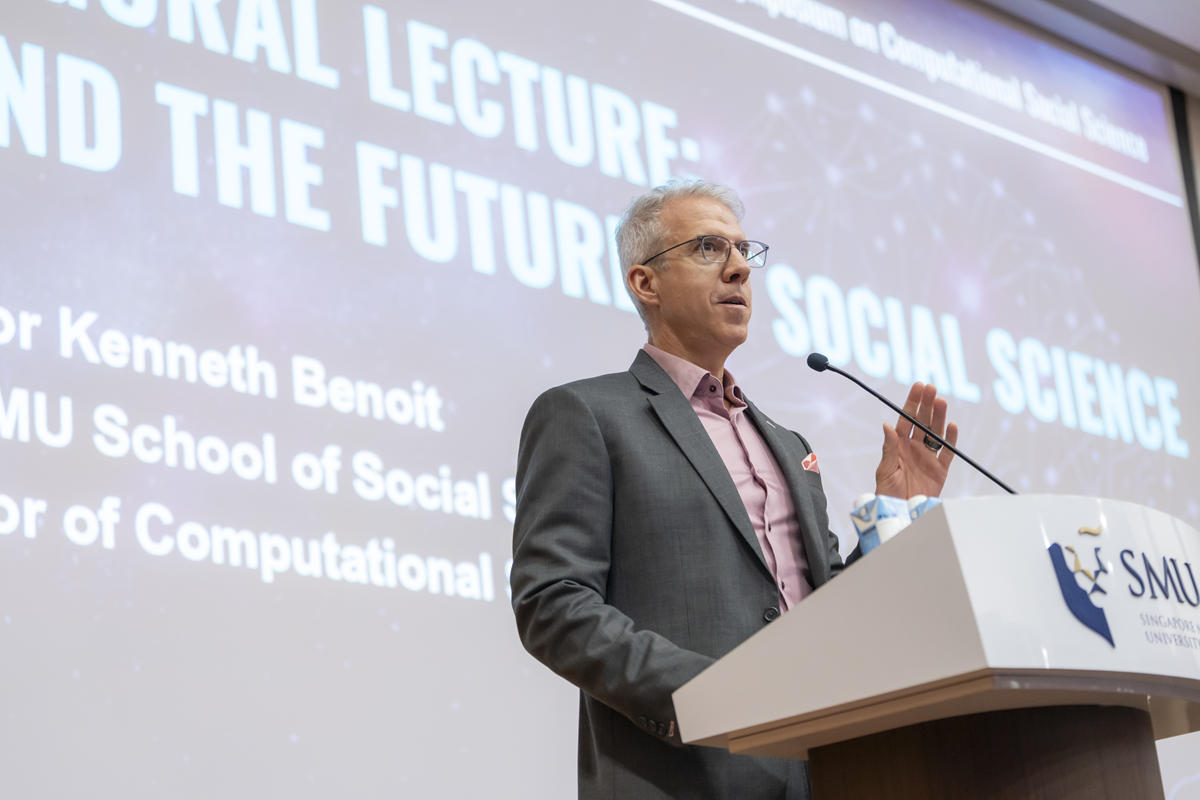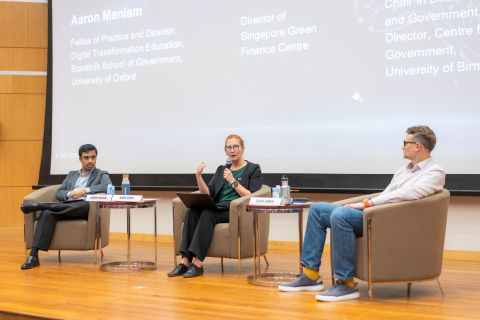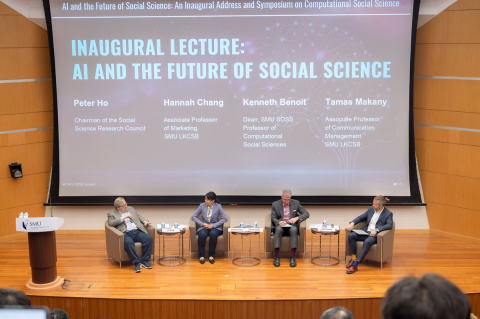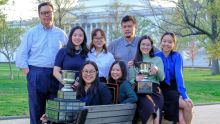
Artificial Intelligence (AI) has existed for decades, but recent breakthroughs — especially in generative AI and large language models (LLMs) like ChatGPT — have accelerated its growth. These tools are now widely used – for better or for worse.
As AI becomes more integrated into everyday life, it’s reshaping the way people work, learn, and communicate. This transformation brings important questions about AI’s impact and the policies that can help to circumvent the challenges of AI — questions that need thoughtful discussion.
Such conversations were central to “AI and the Future of Social Science,” an inaugural symposium on Computational Social Science organised by Singapore Management University’s School of Social Sciences (SOSS).
The event, held on 22 April 2025 at SMU, brought together researchers, industry professionals, and policymakers — both in person and online — to explore the implications that AI has on the social sciences.
In her keynote address, SMU President Professor Lily Kong said: “Artificial Intelligence is not merely a tool of efficiency or automation — it is a catalyst for transformation, one that reshapes how we understand human behaviour, how we govern societies, and how we educate future generations.

“For the social sciences, AI presents both a formidable challenge and a generative opportunity. It compels us to rethink our roles as knowledge producers, reimagine our methodologies, and deepen our engagement with the ethical and social dimensions of technological progress.”
The symposium saw Professor of Computational Social Science Kenneth Benoit, who is also the Dean of SMU SOSS, deliver his inaugural lecture in which he touched on the vast opportunities as well as the serious challenges that AI brings, especially to the social sciences.
The symposium also saw discussions on sustainability and how AI can be harnessed to address climate challenges, as well as on the future of economic science with AI in the picture.
The impact of AI in the production and exchange of knowledge
Opening his lecture, Professor Benoit identified three areas where AI is expected to have the largest impact — knowledge transmission, knowledge production, and knowledge application.
“AI is reshaping how we teach,” he said, reflecting on how the classroom has followed a stable model with professors transmitting curated knowledge and students engaged with it, expressing their understanding through essays, analysis, and argument.
“But with the advent of generative AI, we are seeing a subtle but profound shift. Students can now query an LLM to explain a concept, summarise a theory, or even produce a first draft of a paper. The result is a learning cycle where AI inserts itself between the student and the task of synthesis.”
Professor Benoit went on to caution that he could see the process of knowledge construction become one of mere knowledge confirmation if we are not careful.
In terms of knowledge production, Professor Benoit gave examples on how AI has spread across 20 academic disciplines, from economics and political science to psychology and geology, with the share of papers engaging with AI quadrupling between 2020 and 2022 alone.
“AI is now producing qualitative outputs that were once the sole domain of human creators: written analysis, fluent argument, even creative work like images, music, and video,” he shared, reflecting that the increasing fluency of AI in these tasks comes with the risk of losing the nuance and depth that come from human engagement.
“This is especially troubling for the humanities, where creativity, authenticity, and critical reflection are the very essence of what scholars contribute.”
In the area of knowledge application, Professor Benoit touched on how AI is only able to recognise insight by being trained on a vast archive of human expression.
“They’re not trained on reality. They’re trained on what we’ve already said about reality. That makes them deeply derivative. And increasingly, the danger is that we don’t just train the model on life — we start, in effect, training life on the model.”
Closing his lecture, Professor Benoit said: “If we act wisely, we can harness these extraordinary tools for a healthy and productive process of continued knowledge transmission, production, and application.
“But to make effective and safe use of these technical tools, we must, just as urgently, defend and renew the skills at the interpretative end — skills of judgment, critique, interpretation, and ethics.”
See also: SMU symposium highlights critical role of social sciences in an AI-driven World | SMU Newsroom




